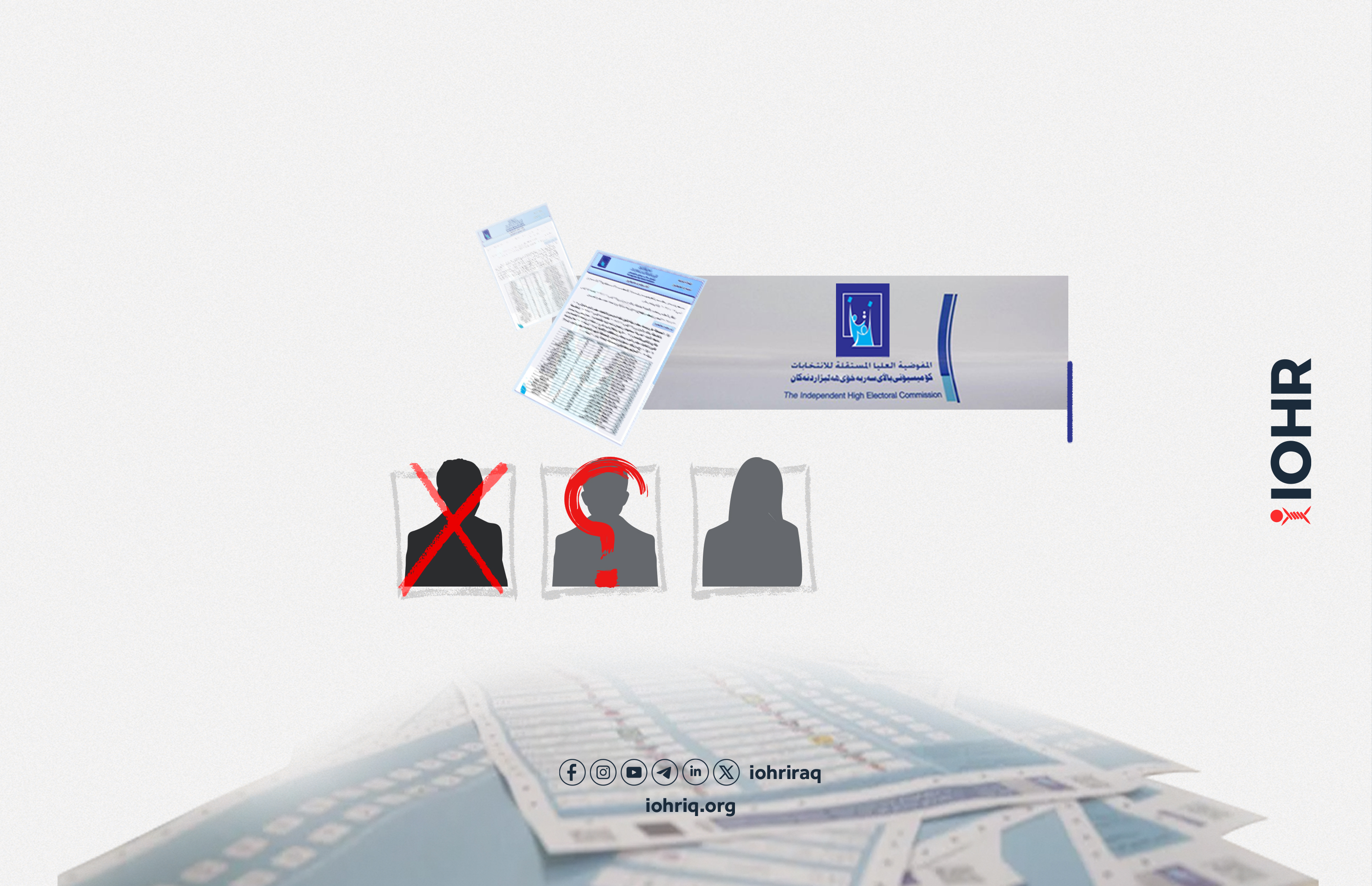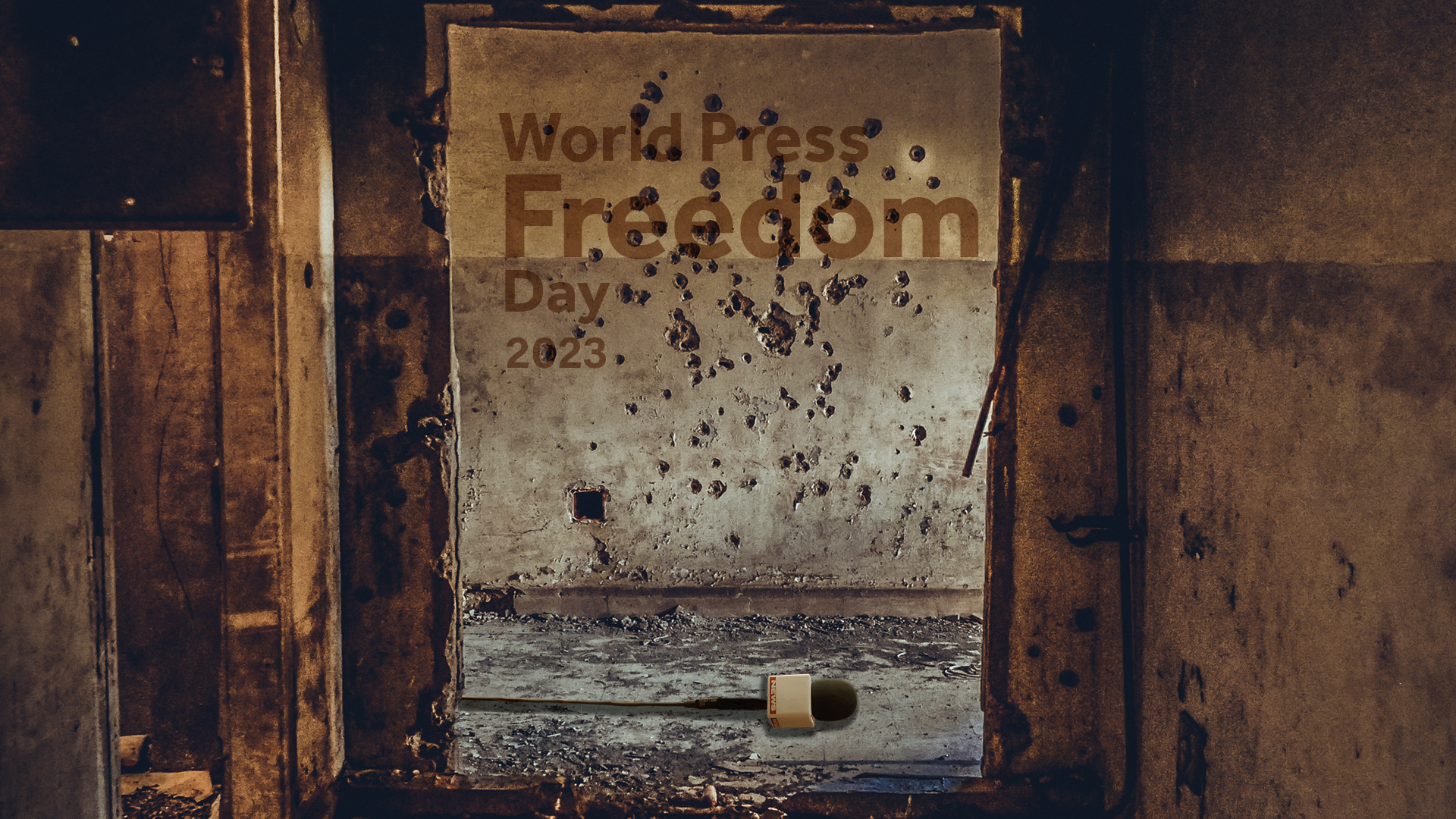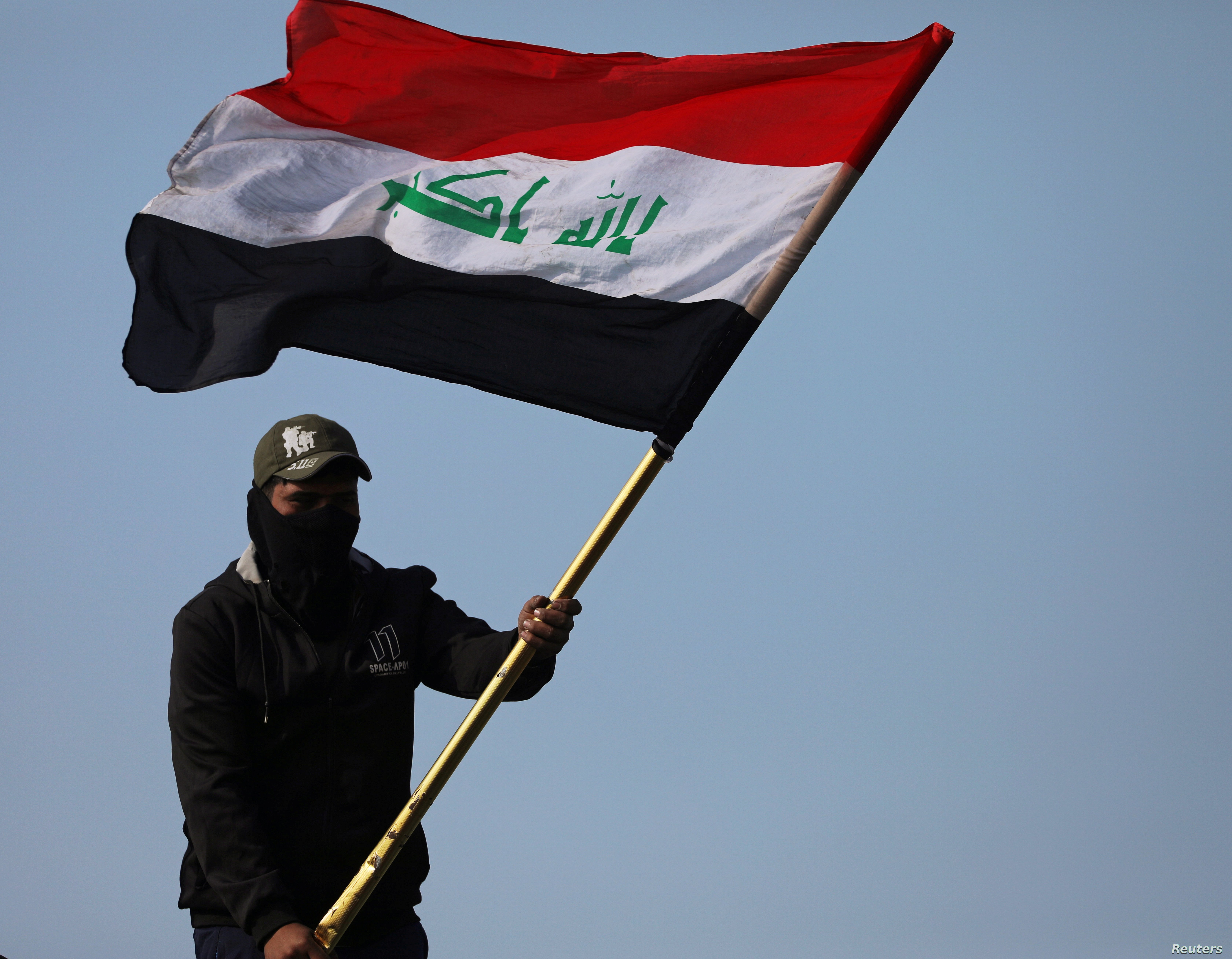November 9, 2025
The Iraqi Human Rights Observatory (IOHR) said that Iraq’s 2025 electoral process has been marked by alarming practices by the Independent High Electoral Commission (IHEC), including the exclusion of several candidates after the publication of final candidate lists.
IOHR considers these measures legally ambiguous and procedurally non-transparent, undermining the principle of electoral justice, which is one of the cornerstones of democratic political participation.
It also noted that the broad interpretation of the IEHC’s powers after final approval of candidate lists constitutes a serious legal problem and raises questions about its compliance with constitutional and legal standards guaranteeing equality and fair competition among candidates.
Background
Since 2003, elections have been a central pillar in rebuilding Iraq’s political system. Yet public trust in the integrity of the electoral process has remained limited due to repeated administrative and legal irregularities.
In nearly every electoral cycle, debates arise over the exclusion of candidates, and such decisions are often perceived as being influenced by political pressure or non-transparent interventions in the work of the IHEC. These actions negatively affect the transparency and independence of the electoral process.
The absence of clear timeframes for adjudicating candidate eligibility has deepened concerns that such powers could be used as instruments of exclusion or restriction on candidacy, which contradicts Article 20 of the Iraqi Constitution that guarantees citizens “the right to participate in public affairs and to enjoy political rights including voting, elections, and candidacy".
Legal Framework
The amended Law No. 12 of 2018 regulates the conditions and mechanisms of candidacy for parliamentary elections.
Article (7) of the law requires that the candidate be an Iraqi citizen of full legal capacity, at least thirty years old, of good reputation and conduct, not convicted of a felony or a crime involving moral turpitude, not subject to the procedures of the Supreme National Commission for Accountability and Justice (SNCAJ), and holding at least a bachelor’s degree or its equivalent.
Article (8/1) obliges the IHEC to submit the lists of candidates to relevant ministries and oversight bodies (including the ministries of Higher Education, Interior, Defense, Education, and the SNCAJ and the Integrity Commission) for verification within fifteen (15) days of receipt.
However, the law does not clearly define the IHEC’s authority after final approval of candidate lists, creating a legal loophole that enables it to revoke or cancel candidacies even at advanced stages of the electoral process without a binding timeline.
IOHR considers this legislative gap a direct threat to the stability of candidates’ legal status, equality in electoral opportunities, and citizens’ confidence in electoral institutions.
Findings
IOHR documented multiple instances in which the IHEC revoked the approval of candidates after final lists had been announced, citing the lack of “good conduct and reputation” as justification without any final judicial rulings or formal evidence to support such decisions.
In several cases, excluded candidates appealed before the Judicial Electoral Panel, which overturned the IHEC’s decisions and reinstated them, as occurred with candidates and current MPs Sajjad Salim and Hussein Arab.
In other cases, IHEC imposed financial fines instead of disqualification. That revealed a lack of uniform standards and inconsistencies in enforcement and accountability.
IOHR also observed that some exclusion decisions were issued after the start of electoral campaigns, causing material harm to the affected candidates and creating both legal and ethical issues related to equal opportunity among competitors.
Legal and Political Analysis
IOHR finds that late disqualification decisions contradict Iraq’s obligations under the International Covenant on Civil and Political Rights (Article 25), which guarantees every citizen the right to take part in public affairs and to be elected without unreasonable restrictions.
These practices also go against the Venice Commission’s Code of Good Practice in Electoral Matters, which requires that election laws be clear, stable, and predictable for a reasonable period before the voting day.
The reliance on an undefined and subjective criterion such as “good conduct and reputation”, without precise legal parameters, opens the door to arbitrary or selective interpretation and exposes the IHEC to accusations of exercising its powers in an inconsistent or politicized manner.
IOHR emphasizes that institutional independence of the IHEC is a key safeguard for free and fair elections. Any political or administrative interference in its decisions undermines public trust and threatens the integrity of democratic representation.
IOHR Position
Mustafa Saadoon, IOHR Founder and President, stated that the IHEC’s disqualification of candidates after final approval “weakens the principle of electoral justice and violates the Iraqi Constitution, which guarantees the right to run for elections to all citizens without unlawful restrictions.” He added: “The IHEC must establish a clear legal and temporal framework for its exclusion powers and subject all its decisions to mandatory judicial review before they take effect. Electoral justice is not limited to the voting day. It begins with transparency and fairness in every stage of the process, starting with candidacy and certification.”
IOHR believes that unrestricted or delayed exclusion measures erode voters confidence, reduce public participation, and create a volatile political environment vulnerable to manipulation.
Oversight and accountability are also made difficult by the absence of clarity and transparency in the IHEC’s decisions, damaging the institution’s independence and the credibility of the democratic process as a whole. IOHR stresses that protecting electoral integrity requires strict adherence to the rule of law and the accountability of the IHEC before the judiciary, parliament, and civil society, ensuring transparency and equal treatment of all candidates.
IOHR Recommendations
Amending Election Law No. 12 of 2018 (as amended) to establish clear and binding timelines for exclusion decisions after final approval of candidate lists.
Requesting the IHEC to provide legal reasoning for all its decisions and publicly disclose them in an official and transparent manner.
Restricting disqualification solely to cases supported by final judicial rulings, prohibiting reliance on administrative or security assessments lacking due process.
Defining clear legal standards for “good conduct and reputation”, linking them to judicial determinations rather than subjective or political reports.
Adopting a principle of proportional disciplinary measures, ensuring that disqualification is used only as a last resort after relying on lesser procedures such as warnings or fines.
Strengthening parliamentary, judicial, and civil society oversight of the IHEC’s performance and promote transparency in all its administrative actions.
The Iraqi Human Rights Observatory (IOHR) affirms that ensuring electoral justice requires legal clarity, institutional neutrality, and equal opportunity for all candidates. The right to run for elections and participate in public life is not an administrative privilege but a constitutional and fundamental right that may be restricted only by law and through due process.
IOHR warns that the continuation of vague or selective exclusion practices will further erode public confidence in the upcoming elections and represent a serious setback to Iraq’s democratic process.
Safeguarding the integrity of elections, IOHR concludes, is a shared responsibility of the IHEC, the judiciary, parliament, and civil society. It is the cornerstone of Iraqis’ right to choose their representatives freely and fairly.




